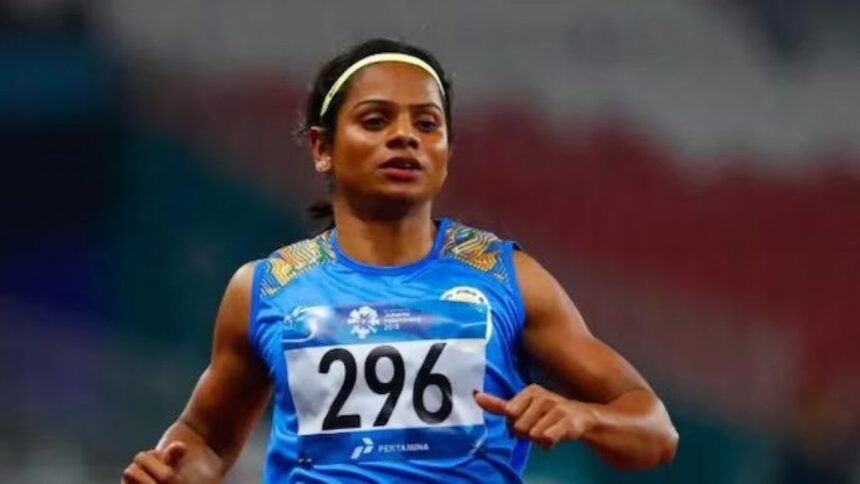Celebrated Indian sprinter Dutee Chand, who was on Thursday banned for four years by the National Anti-Doping Agency (NADA), is reportedly in the process of filing an appeal against the move. She has been prohibited for failing two out-of-competition dope tests for a banned substance.
The 27-year-old 100m national record holder was served the ban after two samples taken in December last year were found to contain “other anabolic agents/SARMS”, which is listed under “WADA (World Anti-Doping Agency)’s 2023 prohibited list of non-specified substances”, news agency PTI reported. The samples were collected on December 5 and 26 respectively and both returned positive for almost identical substances.
SARMS, or selective androgen receptor modulators, are non-steroidal substances commonly used to treat osteoporosis, anaemia and wound healing in patients.
The ban starts from January 3, 2023 and all the competitive results will be scrapped from the date the first sample collection took place (December 5, 2022).
In an interaction with PTI, Dutee’s counsel Parth Goswami said that the sprinter had been a clean athlete all her professional career and it was a case of “unintentional consumption”. The athlete had won silver medals in 100 and 200m at the 2018 Jakarta Asian Games and holds the national record of 11.17 sec in 100m (2021).
“For us, this is a clear case of unintentional consumption of a banned substance. We were clearly able to establish the source of the substance in the body, which is a substantial proof of lack of intent. The substance was never used to gain any sporting advantage,” Goswami stated.
“We are in process of filing an appeal. We are hopeful that we will be able to convince the appeal panel,” he added.
The counsel further mentioned that Dutee is a pride of India and is a clean athlete. Highlighting about her illustrious career of over a decade, he pointed that she has undergone hundreds of dope tests internationally and nationally and has always been clean in her long career.
Dutee and her counsel had also claimed before NADA’s Anti-Doping Disciplinary Panel (ADDP) that it was a case of “unintentional consumption”.








